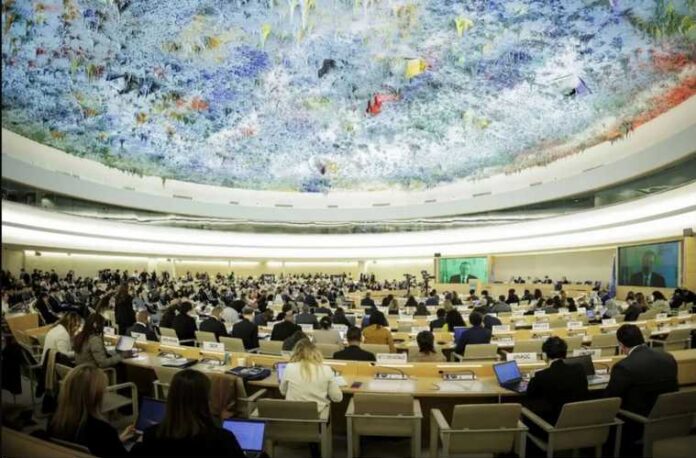By: Staff Writer
March 30, Colombo (LNW): Sri Lanka’s foreign relations have faced significant challenges in recent years, particularly concerning human rights issues and international scrutiny. The country’s engagement with the United Nations Human Rights Council (UNHRC) in Geneva has been a focal point of its diplomatic struggles, as various nations and international bodies have raised concerns about past conflicts, accountability, and reconciliation efforts.
A primary issue in Sri Lanka’s foreign relations is the continued pressure from Western nations and human rights organizations regarding alleged war crimes and human rights violations during the final stages of the civil war in 2009. The UNHRC has passed several resolutions calling for accountability, justice for victims, and implementation of reconciliation measures. While successive Sri Lankan governments have engaged with the UNHRC, their responses have varied, ranging from cooperation to outright rejection of international involvement.
In Geneva, Sri Lanka has often found itself defending its sovereignty against allegations of insufficient progress in addressing wartime atrocities. The government has emphasized its commitment to a domestic mechanism for reconciliation, arguing that international intervention undermines national sovereignty. However, critics argue that the lack of tangible progress and delays in justice mechanisms have led to continued scrutiny and diplomatic strain.
The government has sought support from key allies, including China, Russia, and several South Asian nations, to counterbalance pressure from Western nations. These allies have often defended Sri Lanka’s stance in the UNHRC, advocating for a non-intrusive approach that allows the country to handle its internal matters independently. However, this geopolitical balancing act has also affected Sri Lanka’s economic and trade relations, as Western nations have linked human rights concerns with trade agreements and foreign aid.
Economic challenges have further complicated Sri Lanka’s diplomatic engagements. The country has been reliant on international financial assistance, and strained relations with Western financial institutions could impact much-needed economic recovery efforts. The European Union, for example, has reviewed its trade preferences for Sri Lanka based on human rights concerns, adding another layer of complexity to foreign relations.
Despite these challenges, Sri Lanka has also made attempts to improve its international standing. The government has periodically engaged in dialogue with the UN and international partners to demonstrate willingness to address human rights concerns. Domestic efforts, such as setting up truth and reconciliation mechanisms, have been proposed, though implementation has been slow and met with skepticism.
As Sri Lanka continues to navigate its diplomatic landscape, its participation in the Geneva UN Human Rights Conference remains a crucial aspect of its foreign policy. The outcome of these engagements will influence not only its global reputation but also its economic prospects and regional alliances. Moving forward, balancing national interests with international expectations will be key to stabilizing Sri Lanka’s foreign relations.

